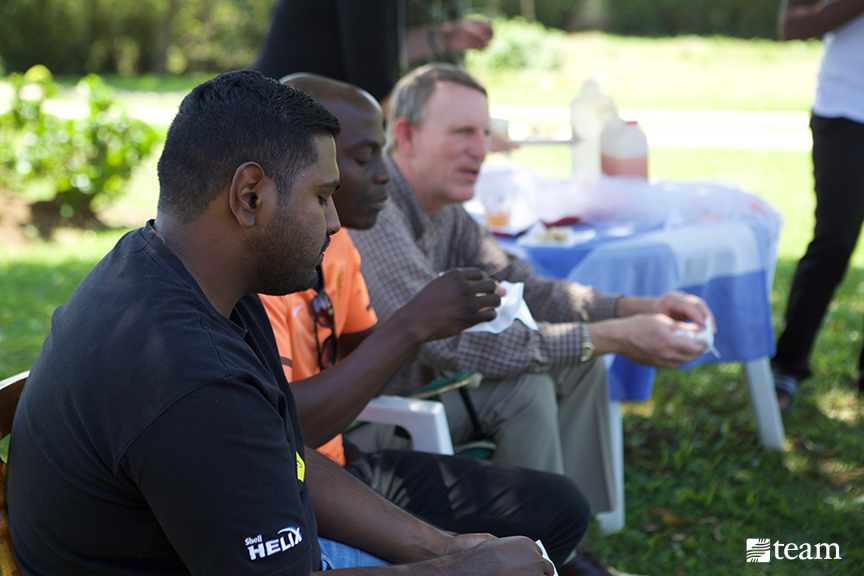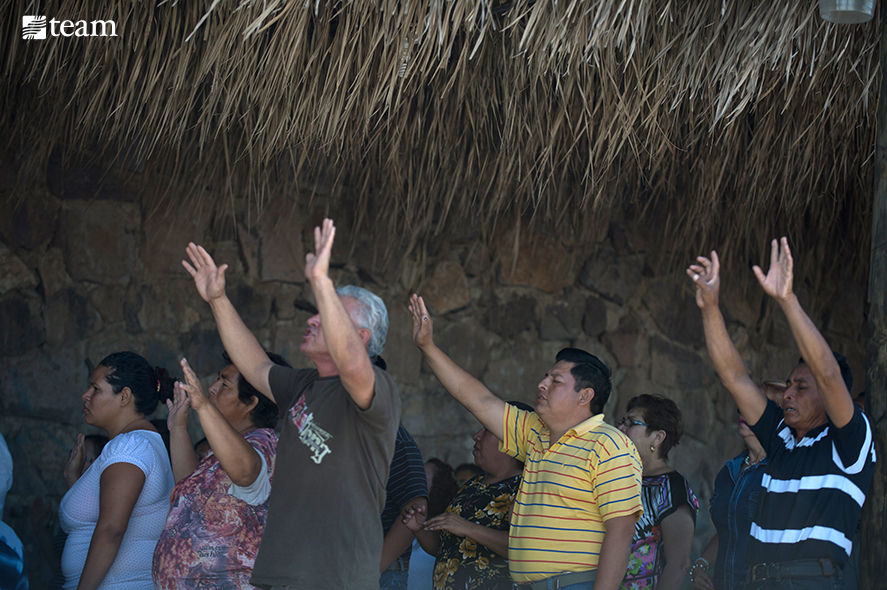
Becoming a Missionary
5 Things to Expect Your First Year as a Missionary
August 25, 2021
by admin

“Your goal for the first term is to survive and want to come back.”
When Eric Binion got this advice, he was a new missionary in South Africa. And at first, it sounded as absurd to him as it probably sounds to you.
Eric already wanted to be in South Africa. Plus, a missionary’s first term is generally four years in-country. After language school, you still have two years to dedicate fully to ministry. Why aim for such a low goal?
Decades later, Eric is giving the same advice.
So, what should you expect your first year as a missionary? I asked kingdom workers around the world to share the uncomfortable truth and their best advice for making it through with excellence.
The first thing you need to know is that you’re building a foundation.
Learning Will Be Your Most Important Ministry
Learning your host country’s language is foundational for obvious reasons. If you can’t speak the language, you’ll have a hard time preaching the Gospel.
“You may get to do some teaching or preaching or discipling in your first year,” Eric says, “but probably not a lot because most of your time will probably be devoted to language and culture acquisition. And I think it’s good to think of that as a ministry.”
Learning a new language and culture strips you. You lose your ability to communicate well, to give wise counsel and even to make people laugh. By pressing hard into the language study season, you can rebuild these skills and prepare yourself for deeper, more effective ministry in the future.
All of this isn’t to say you won’t do any “real ministry.” You’ll likely get to share your faith with language school classmates. And if you’re on a more established ministry team, you may find an abundance of ministry needs you can help fill. But in your first year as a missionary, you need to be careful with your commitments.
“You should be generous with yourself and with your time and with your heart,” says Laura O’Day, TEAM missionary to the Philippines, “but be honest also. … Be ready to say no, especially in that first year.”
Instead of striving to prove yourself in the first year, trust God to use you as He wills, knowing that His timing is perfect. And remember that when you wisely say “no” now, you’re saying “yes” to more grounded ministry now and in the future.
The Climate and Culture Will Drain You
Learning the local culture will be just as critical as learning the language. However, its challenges may be more subtle.
In South Africa, Eric had to adjust to driving differently, buying groceries differently and frequently encountering beggars.
“You get used to those things, … but then there’s bigger things, like the way people think, the way people make decisions,” Eric says.
Because people think differently, problems also have to be solved differently. Relationships are built differently. And you can cause deep offense without understanding why. Constantly butting up against the unfamiliar can leave a missionary feeling lost, frustrated and even angry.

Eric Binion (far left) says that when it comes to culture, it’s the unseen things — like how people think or solve problems — that are best at making you feel lost.
In the midst of cultural shifts, you also may have to adjust to a new climate. In hot climates, the heat, humidity and sweat can leave you with far less energy than you had at home. Similarly, cold cultures may require a change in dress, navigating intense winter weather and simply missing the warmth of home.
Despite these challenges, missionaries say you should be prepared to jump into the culture as fully as you can in your first year as a missionary. Say yes to social invitations, and celebrate the good, honorable parts of the culture as much as you can. Journal about your mistakes so you can laugh about them later.
When the pressure is too much, Laura says, “Go home and take a shower and get some tea … and just chill out. It’s OK to have a terrible day, but then pick up in the morning with a refreshed attitude.”
Real Friendships Will Take Time
As you learn the language, culture and climate, you will long for real, deep relationships.
“One of the things … that hit me so hard when I got to Italy was that I actually had zero history with every single person in the country. … It was like starting over your whole life,” says former TEAM missionary Linda Brucato.
She struggled to build significant relationships in Italian. And eventually, she found herself praying, “Lord, I accept as the cost to coming to this nation, loneliness.”
In Germany, Lexi McNair found that people were excited to be her friends — but often because they saw her as exotic. The relationships weren’t like her deep ones at home.
Still, with determination, both women found that truly mutual relationships came. Stay open as you meet people in language school, at the gym and wherever else your daily life takes you.
While you wait and work to create local relationships, Lexi says to hold onto your relationships back home. Send videos and audio recordings back and forth. Tell friends what your days look like.
Check out these tips for maintaining your friendships while living abroad!
And, Linda says, be willing to see loneliness as a sacrifice for the Lord. It won’t last forever, but it may be the cost of serving Him for a season.
Your endurance now will open the door for deeper friendships and opportunities to share Christ in the future.
Foreign Church Won’t Feed You in the Same Way

Worshiping in another language may leave you feeling dry at the beginning. It’s vital that you find other ways to worship God and feed your spirit.
“Spiritually, for me, the biggest surprise would be how hard it would be to feel like I was worshiping or learning during the Spanish church service,” says TEAM missionary Lauren Witteveen.
Lauren had studied Spanish in college. She’d studied abroad in Spain. Yet, she felt disconnected spiritually. Another missionary described that transition as a spiritual desert.
In one way, this is a good thing. As a missionary, it will help you understand how vital it is that locals be able to learn and worship in their heart language. But don’t stop with the lesson.
“Everybody has to figure out for themselves how they’re going to get their spiritual growth,” says Seth O’Day, TEAM missionary to the Philippines.
If you’re planting a church, that may mean finding a more established, local church to join on occasion. If your home church posts sermons online, listen in, and discuss them with members of the church. Ask other missionaries from your language group to join you for an evening of worship. Listen to worship songs on your own time as well.
With time, worshiping and learning in a foreign language will begin to feel natural. When it’s time to return home, you may even find that you miss it.
You’ll Learn to Trust God Like Never Before
Ultimately, each challenge in your first year serves a greater purpose.
When your education feels like it’s taking too long, you trust in God and His timing.
When the local culture seems illogical, you seek God for discernment and understanding.
When loneliness takes hold, you take comfort in the fact that God knows you, and you know Him.
When church in a foreign language doesn’t feed you, you rejoice that you can worship God at all times.
When everything feels overwhelming, you can walk in humility and faith with the God who called you.
“Your first year gives you a great opportunity to just really lean into the Lord and to trust fully on Him,” Lexi says. “You’ll have many opportunities, many frustrations and homesickness and there’s just a lot of opportunities to … deepen your relationship with Him.”
That relationship is the foundation for the rest of your life and ministry. It’s what gives you the strength to stay past the first year, past the first term and for decades beyond.
Surviving and wanting to come back may seem like a small goal. But God will use this season for His glory and your good. Trust Him enough to put your aspirations in His hands, and watch Him do the work.
Related articles

